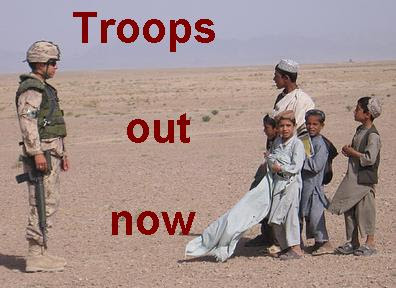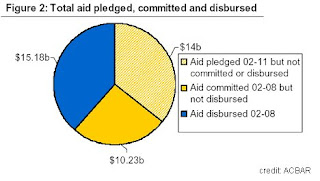Afghan Canadian says media soft on Karzai regime

Speaking before a crowd of at least 150 Carleton University alumni, she painted a picture of today’s Afghanistan where corruption is rife and suffering widespread. Despite billions being spent by well-intentionned Westerners, our efforts are failing to build a better country and our leaders accept a level of corruption in the Karzai administration that she says is alienating ordinary Afghans. ...Having lived through what she hoped was the worst for her country, she came back encouraged by the seeming determination of the Western world to get right what they’d gotten so wrong in the last twenty years in Afghanistan.
Instead she found her country being run by many of the same warlords and Islamists–this time from a parliament in Kabul, instead of from the seat of their local fiefdoms–that had ruined her country in the 80s and 90s.
A Carleton University educated journalist, Pazira condemned Western media outlets for failing to adequately convey the shortcomings of the new regime. If journalists ever make it outside the base, she says, they seek out feel-good stories about girls going to school and life returning to normal. The reality, she claims, is that Afghans are exhausted and frustrated with rising corruption among the Afghan police and government officials and that Western contractors are hobbling the potential of the Afghan economy.
Pazira likened the decision to replace President Karzai’s Afghan security detail with
U.S. Marines as the beginning of a perception problem on par with what Afghans experienced during the Soviet era when invading forces installed a puppet regime to carry out Moscow’s orders.
With due deference to Pazira’s knowledge and experience, I understand not all observers would accept her characterization. Nonetheless, the lecture raises questions that warrant discussion:
- Are we supporting forces of positive change in Afghanistan?
- If we must accept a level of imperfection in the process and allow time for new Afghan structures and governance to improve, where must we insist on basic standards? Where can we afford to turn a blind eye?
- We condemned the ultimately doomed Soviet incursion into Afghanistan in the 1980s. If it’s our contention that the UN’s project in Afghanistan is different today, how is it so? How do we explain this to the people directly affected? Where must we do a better job? ... (link)
Ex-Tory staffer behind pro-mission group
The Ottawa Citizen - January 25, 2008
A self-described grassroots youth organization that wants Canada to continue its mission in Afghanistan was organized with help from a lobbyist who, until recently, worked for a prominent Conservative MP.
The group, Canadians for Afghanistan, introduced itself to the national media on Parliament Hill yesterday by calling on Canada to remain committed to ongoing military and humanitarian support. ...
The Canadians For Afghanistan website lists its main contact as Josh McJannett, a former Conservative staffer who worked for government whip Jay Hill until September. He had previously worked as an aide to Conservative MP Rahim Jaffer.
After leaving the Hill, Mr. McJannett became a lobbyist with Summa Strategies, an Ottawa government-relations firm that counts some defence contractors, including U.S. aircraft manufacturer Boeing, among its clients.
Canadians for Afghanistan was formed a few months later.
Mr. McJannett didn't speak at the press conference and, when asked where he was, one of the Canadians for Afghanistan speakers said he was "in Ottawa." In fact, Mr. McJannett was sitting in the gallery in the briefing room, metres from the podium. He declined to answer questions after the news conference, but did say he was on the steering committee. ... (link)



















